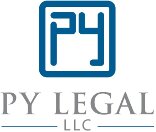Best Land Use & Zoning Lawyers in Singapore
Share your needs with us, get contacted by law firms.
Free. Takes 2 min.
Free Guide to Hiring a Real Estate Lawyer
Or refine your search by selecting a city:
List of the best lawyers in Singapore
About Land Use & Zoning Law in Singapore
Land use and zoning in Singapore are crucial aspects of urban planning, given the city-state's limited land area and high population density. The Urban Redevelopment Authority (URA) is the main government body responsible for land use planning and policies in Singapore. Through the Master Plan and Development Guide Plans, the URA regulates how land in Singapore is used, defining specific uses for plots of land, such as residential, commercial, industrial, or mixed-use. These zoning laws are pivotal in ensuring sustainable development and optimizing land usage across Singapore's urban landscape.
Why You May Need a Lawyer
Legal advice can be invaluable in a variety of land use and zoning scenarios in Singapore. For instance, property developers might require legal assistance to understand zoning requirements for new projects, while individual property owners could face boundary disputes. Additionally, businesses looking to lease commercial spaces must ensure compliance with zoning regulations pertinent to their intended use. Obtaining legal help ensures compliance, mitigates risks, and assists in navigating the complexities of the planning and regulatory ecosystem.
Local Laws Overview
Singapore's land use and zoning laws are shaped by several key legislative frameworks. The URA's Master Plan is a statutory land use plan determining permissible land use and density for developments. Other pertinent laws include the Planning Act, which governs development control, and the Land Acquisition Act, which addresses the government's right to compulsory land acquisition. Familiarity with these laws is essential for anyone involved in property development, as they dictate the permitted use and constraints of land parcels.
Frequently Asked Questions
What is the Urban Redevelopment Authority (URA)?
The URA is Singapore's national urban planning authority responsible for land use planning, development control, and promoting the city's architecture and heritage.
How can I find out the zoning of a particular land parcel?
The URA Master Plan, available online, displays the zoning designations for all land parcels. One can search specific addresses to find relevant zoning information.
What are the implications of zoning on property development?
Zoning determines the types of buildings that can be constructed, their purposes, and development intensity, impacting design possibilities, compliance, and potential value.
How do I apply for planning permission for a development project?
Applications for planning permission are submitted to the URA, where they are assessed based on compliance with current planning policies, guidelines, and the Master Plan.
What happens if a property is used against its zoning designation?
Using property against its designated zoning can result in enforcement actions, including fines, orders to cease operations, or modifications to align with zoning requirements.
Can zoning regulations change, and how would they affect property owners?
Zoning regulations can change as part of review processes such as the Master Plan review. Changes can affect property use, value, and future development rights.
What is a 'white site' in Singapore's zoning terms?
A 'white site' is a plot in Singapore's zoning scheme that has flexible use, allowing mixed developments within certain guidelines, often maximizing site developmental potential.
Is it possible to appeal a zoning decision?
Yes, appeals can be made to the Minister of National Development if there are grounds that decisions on zoning matters have adversely affected one’s property rights.
Are there guidelines for preserving historical sites within land use regulations?
Yes, the URA provides a framework for conservation areas, ensuring the protection of sites of historical or architectural significance within development plans.
How does land use affect environmental conservation in Singapore?
Zoning laws incorporate environmental considerations, promoting green spaces, pollution control, and sustainable practices to balance development with conservation.
Additional Resources
Several resources can aid in understanding land use and zoning in Singapore. The URA website provides comprehensive access to guidelines, zoning plans, and submission processes. The Singapore Land Authority (SLA) also offers insights into land-related policies and property information. Legal associations and real estate professional bodies can provide directories for specialized legal experts in zoning.
Next Steps
If you require legal assistance in land use and zoning, it is advisable to consult with a lawyer specializing in property law. Preparing all relevant documents, such as property deeds, site plans, and correspondence with authorities, can facilitate a more productive consultation. Additionally, consider seeking a lawyer with experience navigating the URA regulations and local zoning appeals processes. Engaging with legal professionals early can prevent regulatory violations and support informed and advantageous transactions.
Lawzana helps you find the best lawyers and law firms in Singapore through a curated and pre-screened list of qualified legal professionals. Our platform offers rankings and detailed profiles of attorneys and law firms, allowing you to compare based on practice areas, including Land Use & Zoning, experience, and client feedback.
Each profile includes a description of the firm's areas of practice, client reviews, team members and partners, year of establishment, spoken languages, office locations, contact information, social media presence, and any published articles or resources. Most firms on our platform speak English and are experienced in both local and international legal matters.
Get a quote from top-rated law firms in Singapore — quickly, securely, and without unnecessary hassle.
Disclaimer:
The information provided on this page is for general informational purposes only and does not constitute legal advice. While we strive to ensure the accuracy and relevance of the content, legal information may change over time, and interpretations of the law can vary. You should always consult with a qualified legal professional for advice specific to your situation.
We disclaim all liability for actions taken or not taken based on the content of this page. If you believe any information is incorrect or outdated, please contact us, and we will review and update it where appropriate.
Browse land use & zoning law firms by city in Singapore
Refine your search by selecting a city.












